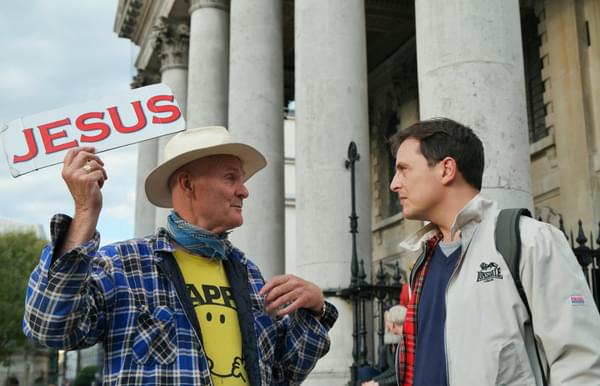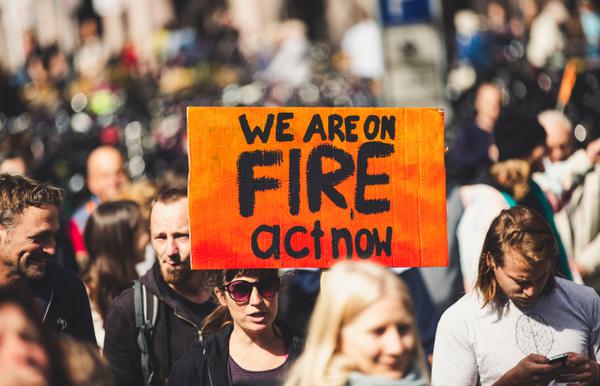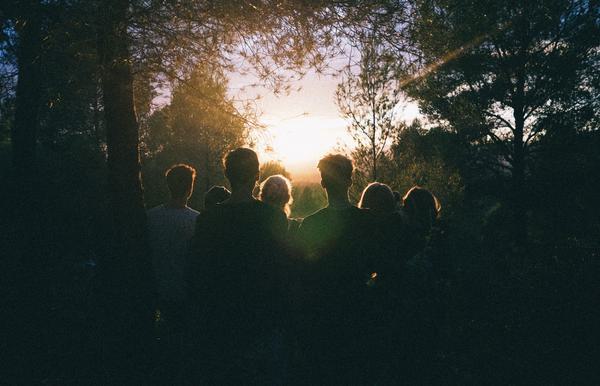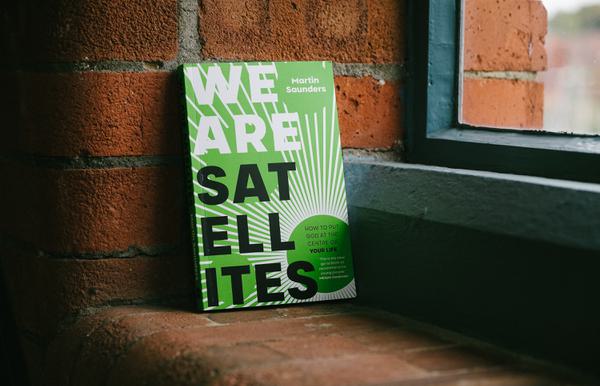Many people don’t think of themselves as ‘creative’ – but they’re wrong. We all have a God-given capacity for creativity that brings hope to a broken world.
Everyone loves a top ten list, especially when it comes to entertainment. The top ten Christmas movies (Die Hard, followed by nine others); the best ever fantasy novels; the greatest one-hit wonders of the 1980s. These were cherished conversations between friends before clickbait was even invented. Yet however weird and diverse the items in your personal halls of fame, there's one factor that links them all – one golden thread that runs through every song or book ever written; every film ever made; every video game ever designed. The source of creativity is always the same.
God creates – from the first story of the Bible when he makes the world, to the last where he announces he's in the process of remaking it. God creates us – his masterpiece – in his own image. He transfers his own likeness onto us, and invites us to become tiny replicas of his incredible glory. He gives us imagination, and invites us to use it in the incredible sandbox of his creation. We are made creative - and anyone who has ever painted, filmed, composed or written anything has only done so because they were infused with the divine spark of imagination when God himself knitted them together.
And yet, that word has become divisive, and even painful. In training sessions with youth leaders over the years, I have often posed the question: "who thinks of themselves as creative?", to be met with a paltry number of raised hands; never more than half the room. Many people – perhaps even most – think of creativity as a rare and limited gift enjoyed by the relative few: people with Macbooks and cool glasses and names like Juno or Onyx.
A gift for everyone
But it isn't. Creativity is a gift, but it's not in short supply. That's a good thing, because it's an essential part of God's plan to remake the world: to make all things new.
Perhaps the problem is that we've somewhat limited our idea and definition of what creativity is. We can reduce the whole of creativity to ideation, and 'creatives' to people who have great ideas. Of course one element of the creative process is the truly new idea: making something out of nothing - but in truth this is only a fraction of the whole. There is also adaptation, development, improvement; the art of taking two distinct things and combining them together and making them into something new. There's the gift of seeing flaws and problems, and sometimes a separate discipline of fixing and building on those flawed ideas. Some people are gifted at giving visual interpretation to ideas through video or graphic design; others think in compelling words or evocative sounds. I could go on: the point is that creativity is a symphony that requires an entire orchestra. It's not all about the first violin.
"God has not only invited us to watch him remake the world, but to participate in its re-creation...not as passive puppets, but as active, creative parts."
This is what film-makers have discovered, for example. To create a classic movie (or indeed an average one), you need to employ a whole range of creative skills - from the screenwriter to the editor to the artist who draws the poster. Even before it's got that far, an agent had to pitch a compelling vision to a room full of executives. Each piece in the puzzle has its own creative role and skillset. One body, many parts.
Sometimes we can struggle to value diverse creativity in the same way within the Church. Yet God has made us all creative, and often in very different ways to each other. And all of our creativity has an important part to play.
Making all things new
When we talk to young people about the 'adventure' of following Jesus, the call is two-fold. We are inviting them to a personal and corporate relationship with the creator of the universe, but we are also giving them a vision of the extending Kingdom of God. "The Kingdom" is a phrase that describes the way in which God is 'making all things new' – continuing the creative process he began in Genesis 1. It is wrong things being made right, it is his family growing and developing; it is the world being re-painted with his love.
In his incredible grace, God has not only invited us to watch him remake the world, but to participate in its re-creation. And even then not as passive puppets, but as active, creative parts. He listens to our ideas – witness Adam naming the animals in Genesis 2; he invites us to unleash the gifts he has bestowed on us, as he did with the artisans who decorated the Tabernacle (Exodus 31: 1-5). And these aren't stories from ancient history – they're replayed again and again in the lives of artists and entrepreneurs and scientists and visionaries who choose to join in with God's transformational kingdom story.
What an amazing thing: that the source of all creation invites us to become an outlet of creativity. So let's never get caught in the trap of saying we're not creative. And let's invite young people to bring their own creativity into the context of the family of God, instead of leaving it at the church door.
Over seven weeks, we're diving deep into the core values behind Satellites – from a youth leader perspective. If you want to explore them with young people, check out our offer on the book written for them; get seven copies and a 'book group' study guide for the price of six.











